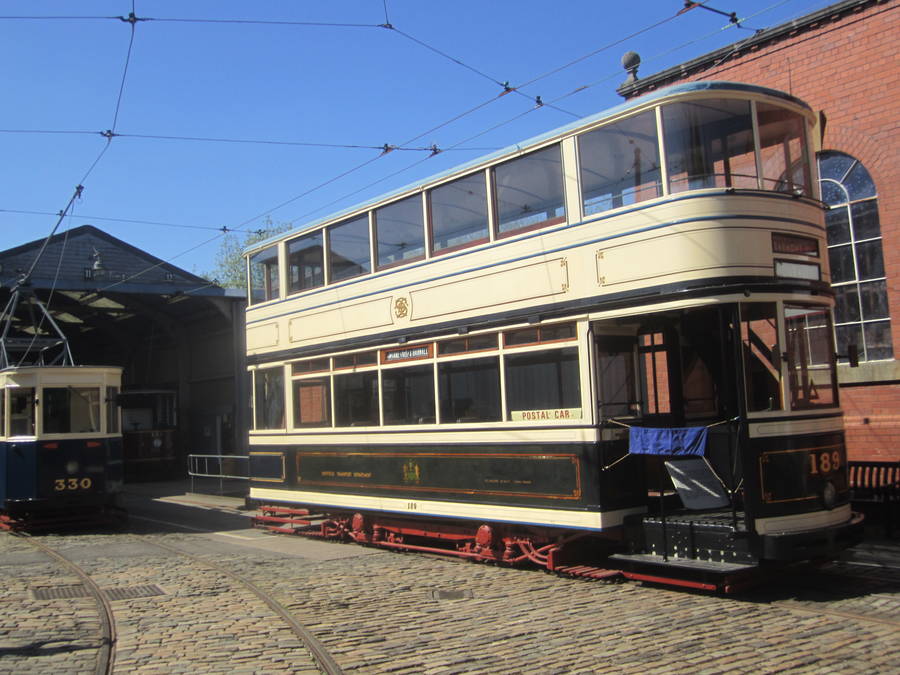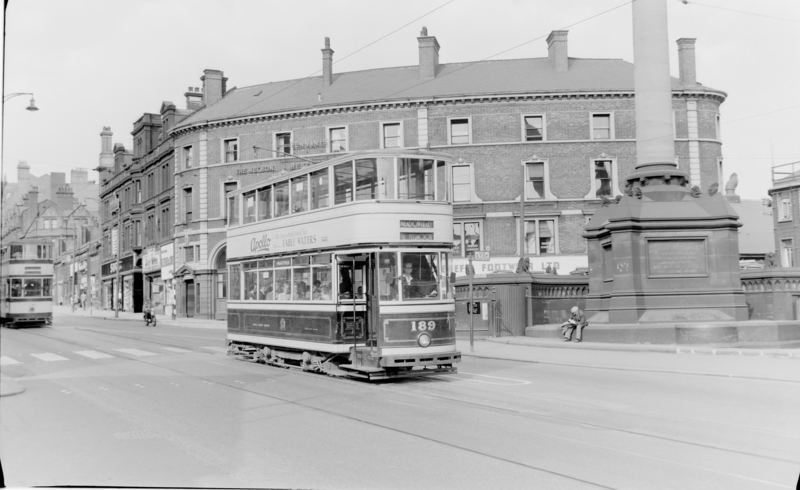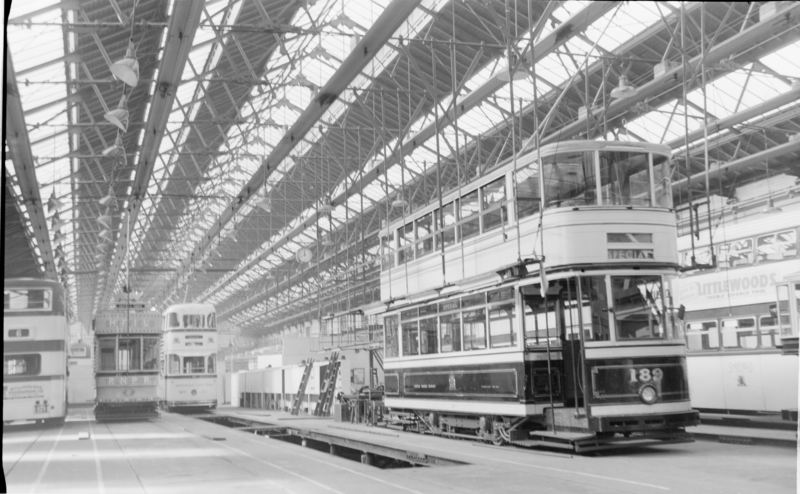Sheffield Corporation Transport No. 189

Photo: Jim Dignan
The heyday of the British tram coincided with the highpoint of municipal activism. Even before the electric traction era, many local councils had already established schools, parks and public housing estates as well as libraries and museums. Most early horse-drawn tramways were small-scale affairs that were built and operated by private companies but after the advent of electric traction there was a tendency for local councils to take them over, electrify them and extend them across the whole city. Many even generated the electricity used to power the trams, as was the case in Sheffield, which built a large generating station for this purpose at Kelham Island.
The first electric trams were often purchased from specialist tramcar manufacturers but, by the time Sheffield 189 was built in 1934, Sheffield Corporation had established its own workshops at Queens Road and was building tramcars to its own design. This was not only a valuable source of local employment but must have provided a welcome boost to the local economy – in contrast to today’s second generation tramways, whose vehicles are much more likely to be imported from abroad.

189 passing Moorhead. M.J. O’Connor, 2/6/1957.
Built to a 1927 “sample” design that was developed by local tramcar manufacturer, Cravens, 189 is a typical example of a Sheffield ‘Standard’ tramcar, of which 210 were constructed by the Corporation. It formed part of a modernisation programme that was intended to meet the growing challenge posed by improvements in motor bus technology and accompanying levels of passenger comfort. The resulting ‘Standards’ incorporated a number of innovations including air brakes, upholstered seats and a generally more modern appearance than the modified Edwardian and second hand cars they replaced.
Specification
- Type of tram
- Double deck fully enclosed four-wheel standard class electric tramcar
- Livery
- Prussian blue and cream
- Seating capacity
- 61 (37 upper saloon, 24 lower saloon)
- Date built
- 1934
- Manufacturer of body
- Sheffield Corporation Transport
- Manufacturer of truck
- Peckham P22
- Gauge
- 4’ 8½”
- Motor
- MV 102DR 2 x 50 hp
- Controller
- BTH B510
- Current collector
- Trolley
- Withdrawn from service
1958, though it did take part in the final closing procession on 8 October 1960.
- Subsequent history
Earmarked for preservation in 1958 and stored in Tinsley depot until the end of the Sheffield system, by which time the then disused quarry at Crich had been acquired as a permanent home thanks to the quest for somewhere to accommodate 189.
- Restoration history
Although the bodywork is still original, the interior fittings are not, since many were replaced by the best that were available from cars that were about to be scrapped.
- Current status
- Conserved; on display
- Date started operating at Crich
- 1969. Has operated in 10 seasons, most recently in 1980.
- Total mileage covered at Crich
- 1586
- Current location
- Depots
- 1934 – 1958Fully operational on original tramway
- 1958 – 1969In storage
- 1969 – 1980Operational intermittently at Crich
- 1980 –On display

